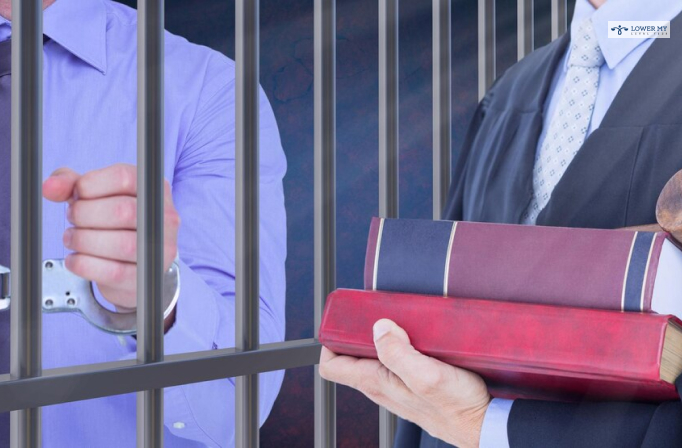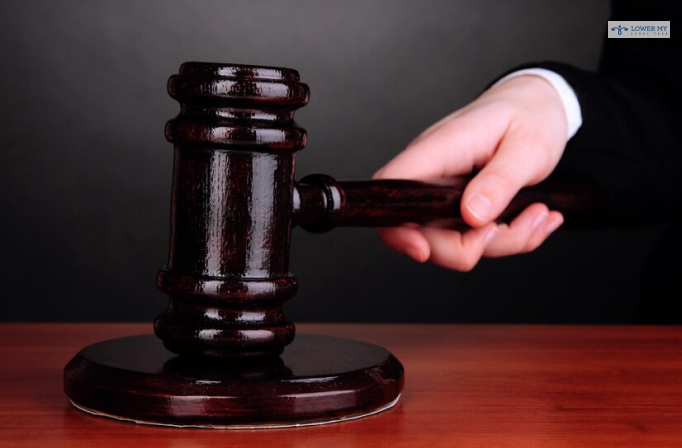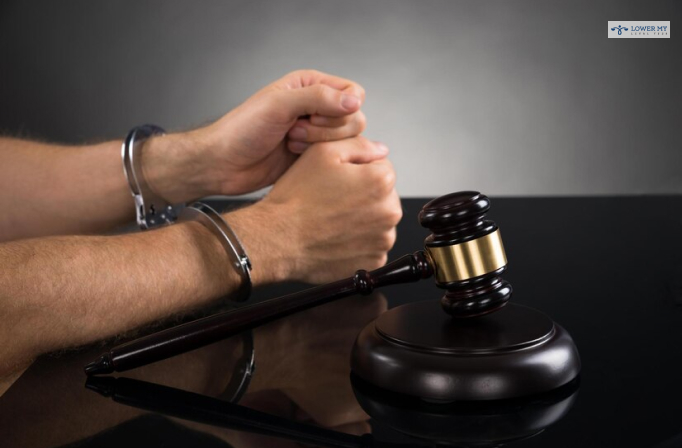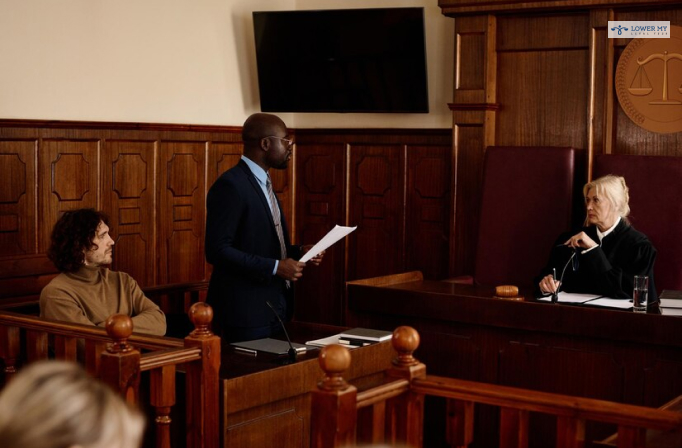Are you wondering whether you can sue for wrongful convictions in the US? Well, you can sue for wrongful convictions with the assistance of an experienced criminal lawyer by your side. In this article, we will discuss what exactly are wrongful convictions and ways you can sue someone for having convicted you in a wrongful manner.
Definition Of Wrongful Conviction

A wrongful conviction is a legal term of reference applied to describe a case in which an individual is pronounced guilty and sentenced for a crime they did not commit. This horrible mistake of justice is the crime of the justice system that fails to establish the innocence of the accused correctly.
Numerous reasons lead to wrongful convictions, such as witnesses misidentifying the perpetrator, police and prosecutor misconduct, and the hiding of evidence that is in favor of the defendant.
The problem of wrongful convictions is the ambiguity, which is attached to the term, with the debates on whether cases involving denial or acceptance of the affirmatives should be called wrongful. The absence of a universal definition of wrongful convictions causes the public and the courts to face the problems of interpreting and understanding them.
Although there are endeavors to change the legal codes and procedures to prevent errors, wrongful convictions are still a big problem, thus, the system must be designed to reverse them and compensate for the lost liberty of the convict.
Issue of Wrongful Convictions
The issue of wrongful convictions is significant because it implies mistakes in the legal process that could ruin the lives of innocent people.
The fact that wrongful convictions are the basis of an unjust and unfair legal system proves that it is very necessary to tackle them. Firstly, wrongful convictions not only end up as wrong decisions but also lower the confidence of the public in the legal system. When the innocent is wrongfully convicted, it shakes the trust that society bestows on the judicial system. Therefore, restoring this trust needs a common endeavor to correct and prevent wrongful convictions.
Moreover, rectifying wrongful convictions is the key to maintaining the principle of the rule of law. When innocent people are put in jail or penalized for the crimes they did not commit, it is an indication of the legal system’s failure to provide justice. The legal system, through the redress of these injustices, hence, shows its dedication to the principles of fairness and equality before the law.
Besides, stopping the conviction of innocent future cases is the key to the protection of individual rights and the maintenance of the justice system. Reforms like restoring the investigative methods, ameliorating the forensic sciences and ensuring the right to competent legal representation can play a part in the reduction of wrongful convictions.
Through the identification of the main causes of wrongful convictions and by means of their prompt elimination, society can protect all the people’s rights and at the same time, the justice system’s credibility will be maintained.
Moreover, the solution to wrongly convicted people is the way of fixing past errors and hence, it is the basic duty of a decent and fair society. The recognition and correction of wrongful convictions helps us to keep the basic principles of justice, to reconstruct the public confidence in the legal system, and to protect the rights of the people.
How Do Wrongful Convictions Occur?

Incorrect convictions are an unforgivable error in justice that can bring about terrible outcomes for both people and society. Through such a study, we can as less reveal the weak points in the criminal justice system that cause such injustices.
Eyewitness Misidentification
The main reason for the wrongful convictions is the fact that eyewitnesses can’t identify the real culprit correctly. It has been proven by studies that eyewitness testimony, which usually is regarded as solid evidence, can be quite unreliable. Some of the factors that can influence the reliability of the eyewitnesses are stress during the crime, cross-racial identification problems, and the time that has passed.
False Confessions
False confessions are the most prominent factor that brings to the convictions based on false evidence. Sometimes, people stop themselves from confessing to crimes they did not commit because of coercion, intimidation or mental health issues. The need to confess, which may be achieved by prolonged questioning, the trouble of being let off, or the threat of violence, can make innocent people say they did something that they did not do.
Police Misconduct
Government wrongdoing, such as police misconduct, is a fact that adds to the wrongful convictions. Instances of evidence tampering, witnesses’ coercion, and other such unethical practices can make the criminal justice process corrupt. The incompetence of law enforcement officials can result in the conviction of the innocent ones.
Forensic Science Errors
Although forensic science is a well-known method to determine the truth, when it is conducted incorrectly or misused, it can also lead to wrongful convictions. The valid forensic techniques will help you decide the verdict correctly, which will inform the jury and the judge. The use of wrong forensic evidence, like bite mark analysis or hair microscopy, has been a cause of many wrongfully convicted persons.
Post-Conviction DNA Testing
Post-conviction DNA testing has been the key factor in identifying wrongful convictions. DNA analysis can be the tool to prove innocence and guilt at the same time because it is a scientific way to reexamine any cases where there are doubts. DNA testing permits the identification of the real culprits of the crime to the newly found convicts and thereby they get a chance at justice and hence retribution.
In addition, more than one side is involved in wrongful convictions hence, this issue is a combination of many factors like witness misidentification, forensic errors, and police misconduct. Tackling these main causes and putting the protection mechanisms in the criminal justice system is the key to stopping the sad results of wrongly convicting people and to preserve the ideals of justice and fairness.
The Process of Suing for Wrongful Convictions

The very first step when you get to questioning if you can sue for wrongful convictions in the United States is the initiation of a legal action. This is what the necessary steps are to sue for wrongful convictions.
Legal Representation
The very first thing that legal representation should be is suing for a wrongful conviction. A well-trained lawyer who has been working on cases of wrongful convictions can be a good mentor and a friend to one during the whole legal procedure.
Case Review
The attorney will closely study the case, going through the evidence, witness testimonies, and any possible errors or misconduct that might have been the root cause of the wrongful conviction.
The second thing you would have to do is to file a civil lawsuit if you are convicted wrongfully. This time, it is advisable to hire an experienced lawyer to make correct decisions for you.
Petition for Habeas Corpus
Petitioning for the writ of habeas corpus is a usual tactic in the wrongful conviction cases. This petition questions the validity of the person’s detention and can result in a new trial or the overturning of the verdict.
Seeking Compensation
Besides the wrongful conviction, people incarcerated may also go for compensation for the time that they have spent in prison, lost income and emotional distress from the wrongful conviction.
Moreover, coming up with a strong case is the third thing that you will have to do if you are trying to find out if you can sue for wrongful convictions. You should work with your lawyer that you hired to get them the information that will generate a good case.
Gathering Evidence
Evidence not considered, such as DNA testing, witness statements or expert testimonies, can be collected to support the claim for wrongful conviction and the case for exoneration.
Expert Witnesses
Expert witnesses, like forensic scientists or legal professionals, can testify that will be a game-changer in proving the innocence of the wrongfully convicted person.
In the end, the trial and appeal procedure are the final stage of the whole procedure which you have prepared in advance and hired an expert lawyer to complete it.
Trial Proceedings
In the trial, the lawyer will show the relevant evidence and arguments to demonstrate that the person who was already in prison was wrongly convicted and ask for justice for him who has been forcefully put in prison.
Appeals
If the first trial is not dismissed, the thing goes on. Consequently, the attorney can submit applications to the higher courts to reconsider the case and possibly change the verdict using new evidence or legal mistakes.
Challenges In Pursuing a Wrongful Conviction Lawsuit

The fact that you must go through the procedure of a wrongful conviction lawsuit is quite a long and complicated one. A person may encounter hindrances and constraints when trying to get justice for a wrongly convicted.
To start with, the main problem in the unusual case of the lawsuit is the high quantity of evidence that must be provided to prove the wrongful conviction. For example, people should show their innocence and prove that mistakes or misconduct took place during the trial that they were originally convicted on. The task is sometimes difficult and needs a huge amount of information and legal expertise.
Besides, the attendant legal process is another big challenge in these cases. To be precise, the appeals process, finding new evidence, and the procedural court can be really time consuming and tiresome and emotional. The often-long period of recourse can be a real challenge for those seeking justice.
Moreover, financial difficulties are the main barrier for lots of people who are trying to get wrongful conviction lawsuits. For instance, legal fees, court costs, and expenses related to investigations which are often very big can accumulate very fast thus it is very hard for some to afford quality legal representation.
Besides, the emotional stress of the same trauma which the wrongful conviction caused can be extremely intense. So, for instance, people may encounter mental issues such as anxiety, depression, and post-traumatic stress disorder, as they encounter past injustices and attempt to get exoneration.
Although these obstacles are present, the will to persevere and the determination to achieve the goal of a wrongful conviction lawsuit are the essential factors in succeeding. Through the assistance of advocacy groups, legal experts, and mental health professionals, the persons can overcome these difficulties and be on the way to justice and vindication. Keeping on track, staying strong, and getting the facts are the key elements that are needed to raise the possibility of a good result in the legal process.
Conclusion
Now you have the answer to your question, can you sue for wrongful convictions? Being able to collaborate with an experienced criminal lawyer shall allow you to build a strong case to fight back the wrongful convictions against your name. Make sure you are providing your lawyer with the appropriate information for a better and stronger case. Best of luck.
Read More…
Top 10 Wrongful Convictions in the US from 2000-2024
All You Need to Know About the False Imprisonment Penal Codes
A Comprehensive Guide to Non-Violent Offenses Under the US Penal Code






